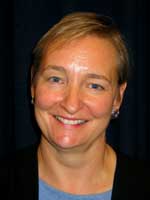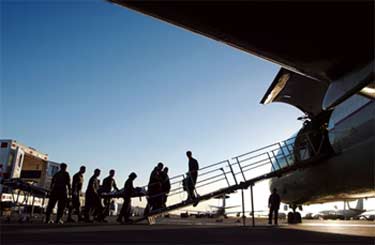
Kathleen Kenna
By Brent E. Huffman
With tears in her eyes, Kathleen Kenna recalled the moment she said her final goodbyes to her husband. She believed she was experiencing her last moments on earth. In a brief moment of consciousness, she awoke from a coma to see her ravaged body surrounded by a forest of plastic tubes. Kathleen remembers feeling extremely cold and thinking, “I can’t leave my husband here alone.”
It was 2001 in Afghanistan right after the fall of the Taliban at the hands of the United States military. The world was still reeling after the tragedy of September 11th. Kathleen had been working for the Toronto Star, Canada’s largest newspaper, reporting in India.
On September 12th, a day after the Twin Towers fell, she was in Pakistan on the road to Kabul.
Kathleen was covering the war in Afghanistan when a van she was traveling in with three other people, including her husband Hadi Dadashian, was attacked. A grenade was lobbed through an open window of the vehicle. The grenade rolled under Kathleen’s seat and exploded underneath her. Shrapnel from the blast lacerated her body. Surprisingly, she was the only one injured in the van.
Kenna was traveling back from a trip to the Southeastern province of Gardez with a driver, a photographer, and her husband, a native Dari speaker, who served as her translator and companion on the trip. They had been interviewing well diggers laboring in the hot sun. Kathleen had been warned not to travel outside of Kabul, especially not to the Southern border, but this trip was supposed to be safe, according to her driver. They would travel only during the daylight hours and get back before sundown.
What they did not know was that the U.S. military had been bombing the mountains surrounding Gardez in its effort to find Osama bin Laden. Some have alleged that an Al Qaeda insurgent attacked the van thinking Kathleen and her companions were working with the U.S. military, but that is only a theory.
After the grenade attack, Kathleen was rushed to Bagram Air Force Base in Northern Afghanistan by helicopter. “I had lost a good part of my back and upper leg,” said Kenna. The rest of her body was full of metal debris. Kathleen’s husband was told she would not survive. The U.S. military notified her parents, at home in Canada, that she was already dead.
It was here at a makeshift hospital in Bagram that Kathleen briefly awoke to recognize her husband. They had only been married for a few short but very happy months. She whispered a brief goodbye and lapsed back into a coma.
In a stroke of luck, she was then put on a plane to Uzbekistan where she received an emergency operation that saved her life. Another flight took her to Germany where she remained in intensive care for weeks. She then flew home to recuperate in Canada. After intense physical therapy she can once again get around normally.
Kathleen is grateful to be alive.
A high school English teacher inspired Kathleen to be a journalist. She was an extremely shy teenager and believed journalism would help her get over her shyness.
After a grenade attack in Afghanistan, journalist Kathleen Kenna was loaded onto an airplane bound for Uzbekistan, where she received a life-saving operation. (Photo: Master Sgt. Keith Reed)
She was 16 when she got her first newspaper job at a small weekly newspaper. In high school she worked for The Port Hope Evening Guide, one of the oldest newspapers in the area. Hired because of her enthusiasm, she worked as a reporter and a news photographer. Kathleen joked “I got some really bad pictures in the paper.” She then enrolled at Carleton University in Ottawa and received an English/Journalism degree.
In 1981 Kathleen Kenna got a job at the Toronto Star. “If you are someone concerned with social justice, then the Toronto Star was the perfect place to work. They always were a champion for the underdog, concerned with issues like human rights and poverty,” said Kenna. She began as a political reporter covering Western Canada with a base in Vancouver. She then moved to the United States to report from the Star’s Washington bureau when she covered the Gore/Bush election in 2000.
But she really wanted to be a foreign correspondent to inform her fellow Canadians about social issues in the Third World.
In 2001 Kathleen was instrumental in designing a South Asia bureau for the Toronto Star based in India. As soon as she arrived in India, the Sept. 11th attack happened and Kathleen left for Afghanistan. Afghanistan was considered to be nightmarish place for women but when asked if she was afraid to go to the war torn country, Kathleen said without hesitation, “No, it was my duty as a journalist.”
In Afghanistan, Kathleen at first had trouble talking to women and children. Men controlled the household and didn’t like the idea of a foreign woman journalist speaking to their families. Finally, with the help of RAWA, The Revolutionary Association of the Women of Afghanistan, she was able to interview women of all ages unrestricted. She found Afghan women were eager to talk. “They were so excited that someone would come all the way from Canada to talk with them,” said Kenna.
In Afghanistan, Kathleen covered humanitarian issues like life in refugee camps, the spread of disease, disability, education, and the dangerous situation for children. While reporting, she fell in love with the Afghan people. “I was astonished by their hospitality. The people are so kind and open hearted. They have so little to offer yet they would give you everything they had,” said Kenna. When starving families would try to offer her food, she would kindly say, “Please stop. I can go without a meal.”
Kathleen wants to return to Afghanistan someday to the disappointment of her family. Her parents told her they would stand in the path of the plane to stop her from leaving. “I would like to return but I couldn’t put them [her family] through that stress again,” said Kenna. “But I think about the Afghan people a lot. I read everything I can about the country. I worry about their future.”

